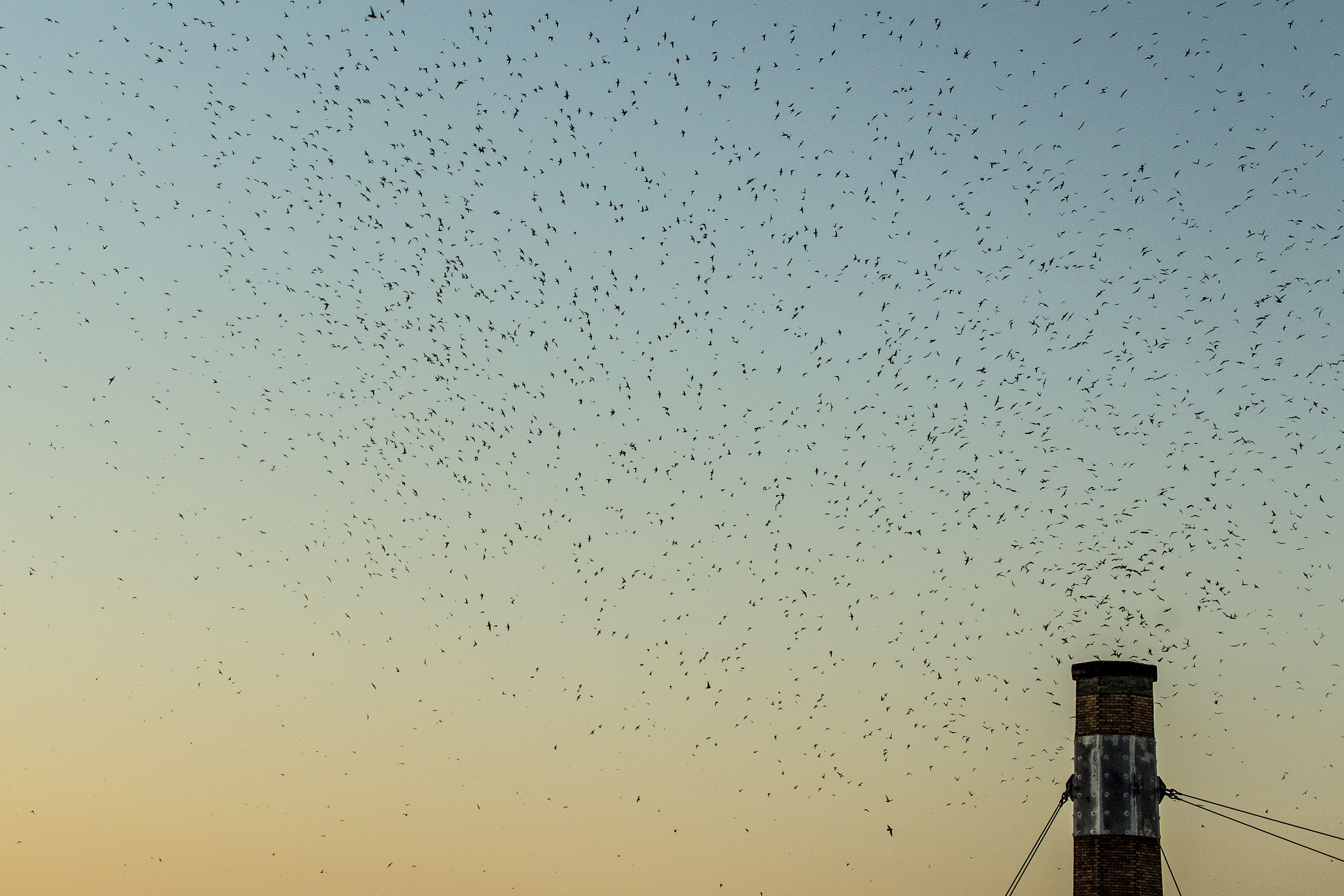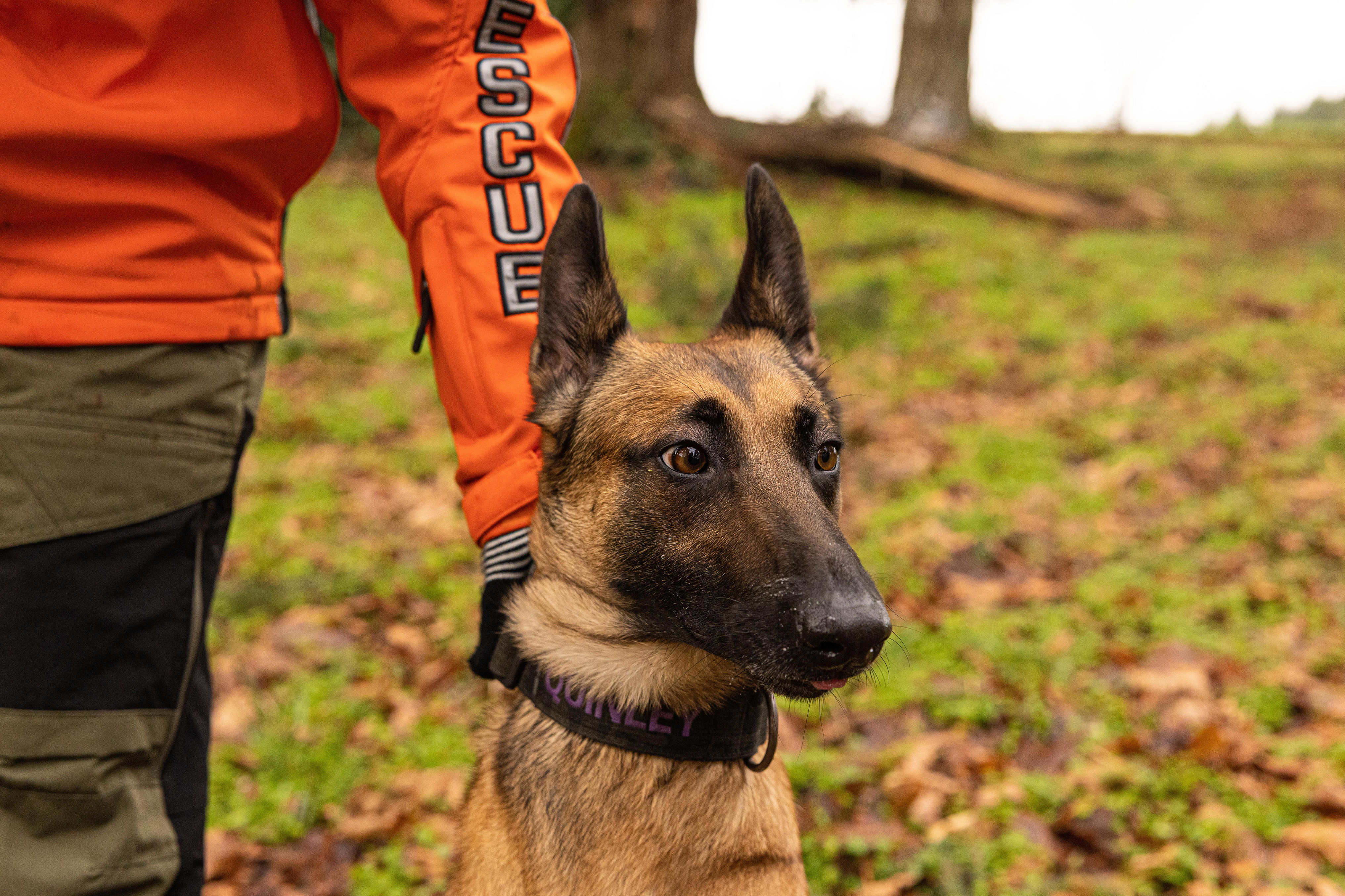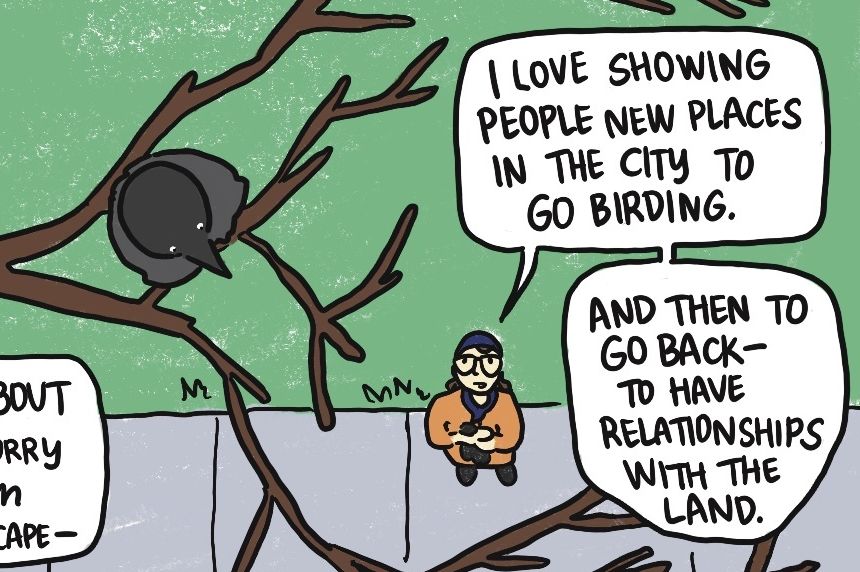The Spotted Owl, the Timber Economy, and the Epic Conflict that Defined Our Forests
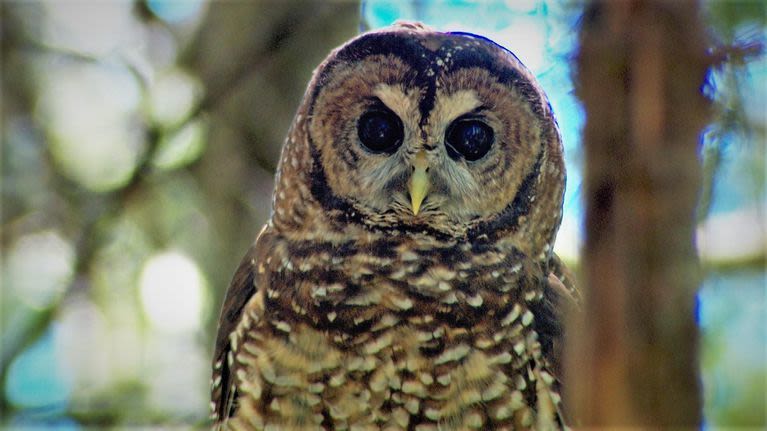
Timber Wars, a seven-part series on a fight in the 1990s over ancient trees and the northern spotted owl that turned into one of the biggest environmental conflicts of the last century, is set for release on September 22.
Image: Courtesy Todd Sonflieth/OPB
OPB’s latest podcast, Timber Wars, a seven-part series on a fight in the 1990s over ancient trees and the northern spotted owl that turned into one of the biggest environmental conflicts of the last century, is set for release on September 22. Portland Monthly spoke with Aaron Scott, former PoMo editor, host of Timber Wars, and a reporter/producer at OPB, about the new series on the Pacific Northwest’s most defining environmental conflict and how it dovetails into today’s current discussion on climate change and wildfire management.
Congrats on the podcast release. You recently tweeted about the first episode of Timber Wars, and you said you almost teared up. You’ve produced stories before, have even won awards for those stories. Does this story and this moment feel different to you?
Yes, absolutely. Covering the arts, I got to talk to lots of people who had just finished a book or just finished a documentary, and I certainly have a lot of friends who’ve written books and have done documentaries. And I don’t think I really ever understood just what an undertaking it is to give a year of your life to a project like that. In the past, the biggest things I got to do were some of the magazine articles at Portland Monthly or some of the field guide stories I do, where you work on them for maybe a couple of months, and you feel like, “Oh, I really got into that. And I’m ready to move on.”
It’s been more than a year to really immerse [myself] in a subject and particularly one as complex and rich and troubled as the timber wars. So yes, it’s been an order of magnitude different than anything I’ve attempted.
You have a keen interest in where science and nature blend and coalesce. Where did this interest stem from?
I was really good at science in high school, but I hated being in labs and consequently dropped it when I went to college. And it took me years, basically when I was a grad school for journalism and did a seminar science writing, to realize, “Wait a minute, journalism is the way I can learn all of these things and immerse myself in all of these big ideas, but not actually be in the lab for several years trying to work out the problem.” It’s a way to vicariously enter all the big ideas…. To me, in journalism, you get to be professionally curious.
Science is hard, so [journalists] are, in a way, taking the easy route that we get to just learn about it from [scientists]. But at the same point, I feel like there are so many amazing stories behind the science that you can’t put into a research paper, and that’s where we can then help science. We can dig into some of those stories that bring the research to life for an audience that maybe is not so interested in reading about methodology.
What drew you to the timber wars as a topic for a podcast?
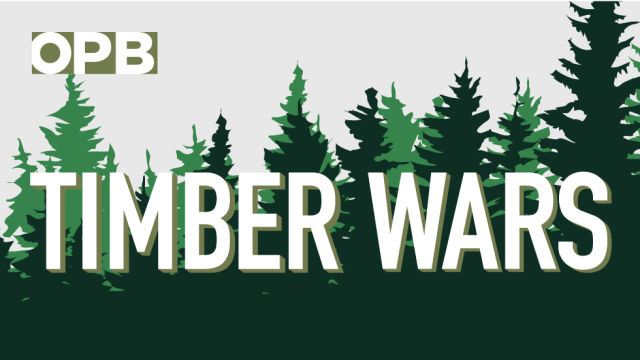
Cover art for Timber Wars
Image: Courtesy OPB
Our executive editor of science and environment at OPB Ed Jahn realized it was the 30th anniversary of the spotted owl being listed as threatened this year. He had the suggestion of looking back at this because this period transformed the Northwest in ways that a lot of, particularly city folk, don’t know…. There’s a lot of people who don’t realize how different the Pacific Northwest was just a generation ago. He had the idea that we should do a documentary, but so many of the stories of what happened back then didn’t have a camera there filming it, so we weren’t going to be able to tell some of the most important or interesting pieces of this history if we focused on what had video footage, so I suggested we do a podcast.
I moved here when I was 8, in 1989, which is actually the year we begin the first episode. And I have to admit, I’ve lived here most of my life, and I didn’t know a lot about it, and I didn’t realize how much it transformed the Northwest from this timber economy to the more beautiful tourist, recreation-based culture the Northwest is known for now. For me, I wanted to learn how we saw forests in the ’70s and ’80s, and I discovered that the way we saw them was completely different than the way a lot of people see them today.
As you were researching this story and gathering interviews, were there things that surprised you or told you a different side of the story you hadn’t anticipated?
I grew up in Colorado, and in my mind, forests were places that you hike and you camp and you play. And I didn’t realize until working on this that the Northwest was founded on the idea that forests are places that you log, and we use that timber to build our houses and make our toilet paper and all of our wood projects. I had no idea that, here in the Northwest, the plan had been to harvest all of our national forests, and that they were seen in terms of a resource that you can cut down and sell as opposed to a natural resource that you go out and enjoy.
For a lot of people, especially those that don’t live in the Northwest, the idea that we even log national forests is completely foreign. They assume that national forests are like parks, that they’re protected places and that the Forest Service and Smokey Bear, you know, their job is to protect the forest, when in fact most of their history, their job has been to sell the forest. So to me, the big surprise was to realize that was the state of things.
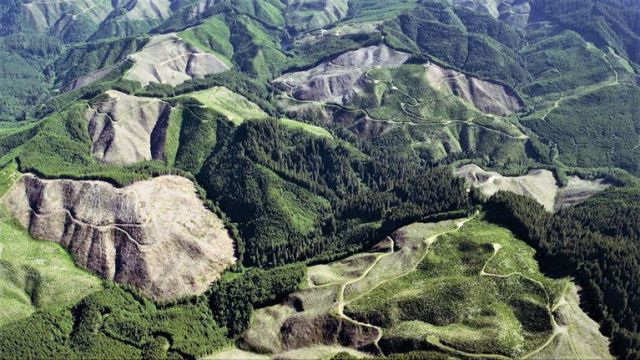
"I grew up in Colorado, and in my mind, forests were places that you hike and you camp and you play," says Aaron Scott. "And I didn’t realize until working on this that the Northwest was founded on the idea that forests are places that you log, and we use that timber to build our houses and make our toilet paper and all of our wood projects."
Image: Courtesy Todd Sonflieth/OPB
I assumed that we’d always known that forests were always this complex web of life where everything depends on everything else. Really, we kind of saw it as “Well, they’re trees. And you cut them and you replant them, and it’s the exact same forest it was before you cut it down.” When in fact it takes decades, if not centuries, to become a similar forest to what you cut down.
Another thing… was this realization that for [rural towns and timber communities], the spotted owl and the northwest forest plan and all these things that people who are new to the Northwest don’t really know about, are still very much alive and still have very really consequences on their economies. Basically, there are two very different views of forests and how they work and what they mean and why they’re important that we now see playing out in the fight over wildfire management and how we should be managing our forests to prevent wildfires.
Obviously, this wasn’t planned, but it’s a bit of coincidence that this podcast about the timber industry and forest management is coming out around these historic West Coast wildfires. When you look at the podcast, its message and its insight, although perhaps not directly about these fires, is there anything you think people can take away with regard to how we manage and take care of our forests?
A central thesis of the podcast is that the timber wars didn’t really end. They’ve just evolved. And our fight over the forest evolved from protecting old growth into the role that forests play in climate change. The timber wars have evolved into fights over cap and trade and climate change and wildfire management.
To me, in some ways, the problem is the forest has become, like so many issues, a wedge in which both sides have completely competing facts about what’s going on and they have competing science, and they’re kind of finding different solutions to the same problems. One of the takeaways for me [in the last episode of Timber Wars] is that there is a spot where the two sides agree to follow the same science and work with the same set of facts. It’s one spot where the two sides agreed to forge ahead with a shared language, and that gives me a lot of hope that it can be done.
That said, they’ve spent years and years and years and went through lots and lots of disagreement and fighting, so it takes a lot of patience and a lot of trust and a lot of camaraderie that can only happen when people sit down together and actually talk and socialize together.
Timber Wars
Listen to Timber Wars on Apple Podcasts. The final episode of Timber Wars will be published the week of September 28.
